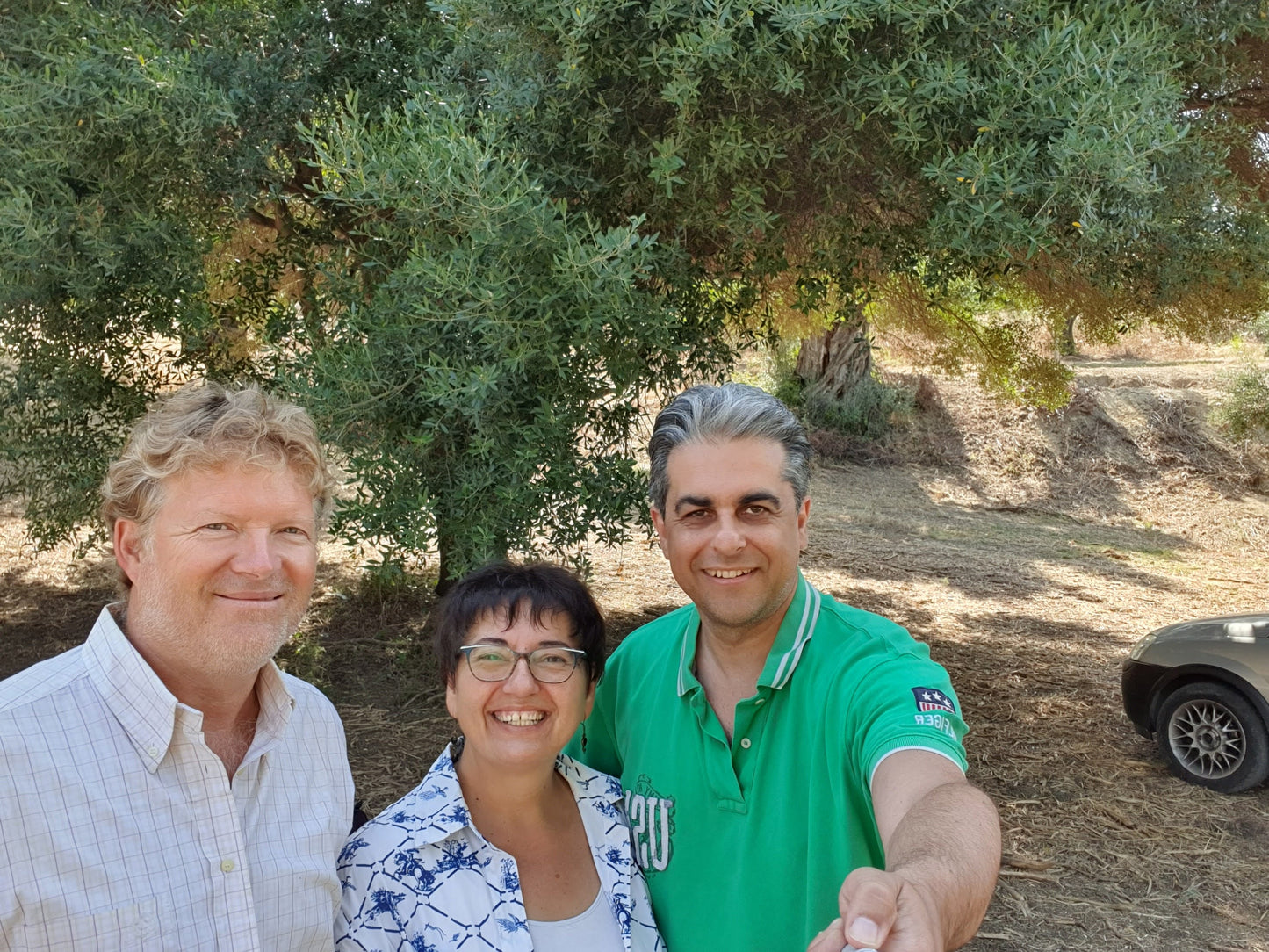
Greece is known for its beautiful beaches, delicious food, and lively atmosphere. But Greek olive oil is not only one of the best on the market, it's also one of the tastiest!
A person in Greece consumes 13 liters of olive oil per year – the world's largest per capita consumption! That's not just 26 bottles of Corovita organic olive oil from Greece, but this consumption also entails a large production volume. If you want to learn more about how Greece produces its oil or how much it truly means to the Greek economy, you should definitely read on!
- Why olive oil is important for Greece's economy
- Olive oil production in Greece
- The producers of Corovita organic olive oil from Greece: Kotrotsis family
- A true delight: Corovita organic olive oil from Greece
Why olive oil is important for Greece's economy

Olive cultivation and olive oil production are undoubtedly one of the most important sectors of the Greek economy. In fact, Greece is the second-largest producer in the world, with an annual olive oil production of over 300,000 tons—an impressive figure!
For the Greek economy, the production of olive oil, both organic and regular, is one of the most important exports. The entire industry is so vital to the country that it employs over 100,000 workers. A large portion of the harvest workers come from abroad, with jobbers from Albania and Pakistan being popular.
The true distinguishing feature of olive oil production in Greece is probably the abundance of small family farms. According to estimates, there are over 3,000 mills in Greece – many of which are directly owned by the producers. These are often traditional family businesses that pass on their knowledge and experience from generation to generation.
Olive oil production in Greece

But what exactly makes Greek olive oil so special? We believe it's the very specific conditions under which the olives ripen and are processed.
Greece: The region of olive oil
The first unique aspect is the environment in which the olives ripen to their full glory. Greece's climate is so well-suited to olive cultivation that olive-growing regions stretch across the entire country. Even the country's many islands boast a diverse range of crops.
By far the most cultivated region is the Kalamata area. Here, abundant rainfall and waterfalls combine with hot summers, making Kalamata known even beyond the country's borders as an olive-growing region.
Cultivation & processing of Greek olives into olive oil
When it comes to olive cultivation, a distinction can be made between two popular varieties. The olives that are subsequently processed into oil are usually Koroneiki olives, and table olives, which are intended for consumption, belong to the Kalamon variety.
When it comes to olive cultivation, producers face two major challenges:
Autumn storms: As the weather cools, strong winds arise, causing the olives to fall to the ground. This is a real shame at this time, because the olives are just about to ripen in the fall, thus ruining part of the harvest.
-
Fruit flies: As with other food crops, olive cultivation must be expected to be subject to a certain degree of pest infestation. Fruit flies are the most common enemy. Especially in organic farming, which has been expanding in Greece for decades, fruit flies are difficult to control because conventional pesticides are not used.
When the time finally arrives and the olives are ready to be harvested, the harvesting machines are unpacked. The traditional hand-harvesting method is no longer common. The olives are then transported from the field to the mill. Continuous milling is becoming increasingly common here, while the traditional press is slowly disappearing.
In our blog, we explain the process ofgrowing organic olives and the production of olive oil in more detail. You can also find further information on organic olive oil here.
The producers of Corovita organic olive oil from Greece: Kotrotsis family

Our shop also offers Corovita organic olive oil from Greece, which we source from our long-standing and valued partner , the Kotrotsis family . The family lives in southern Greece and spends their days with their farm dog and cats, creating a welcoming atmosphere during visits that invites repeat visits.
The family owns its own fields near Kalamata and also manages its own olive mill there. In everyday life, the head of the family, Stylianos, hops onto his tractor every day to work in the fields and oversee everything, while his wife, Effi, lovingly takes care of the mill.
A true delight: Corovita organic olive oil from Greece
Corovita organic olive oil from Greece is not only delicious, it also contains a lot of heart and love. See for yourself!
 |
 |
 |




















Guten Tag, ich hatte vor einiger Zeit bei Ihnen IBC-Container gekauft. Leider waren diese zu einem späteren Zeitpunkt nicht mehr erhältlich. Nun meine Frage: Verkaufen Sie wieder IBC-Container? Zu welchem Preis? Ich benötige 2 Stück und würde diese wieder mit dem Anhänger abholen.
MfG Reinhold Groß